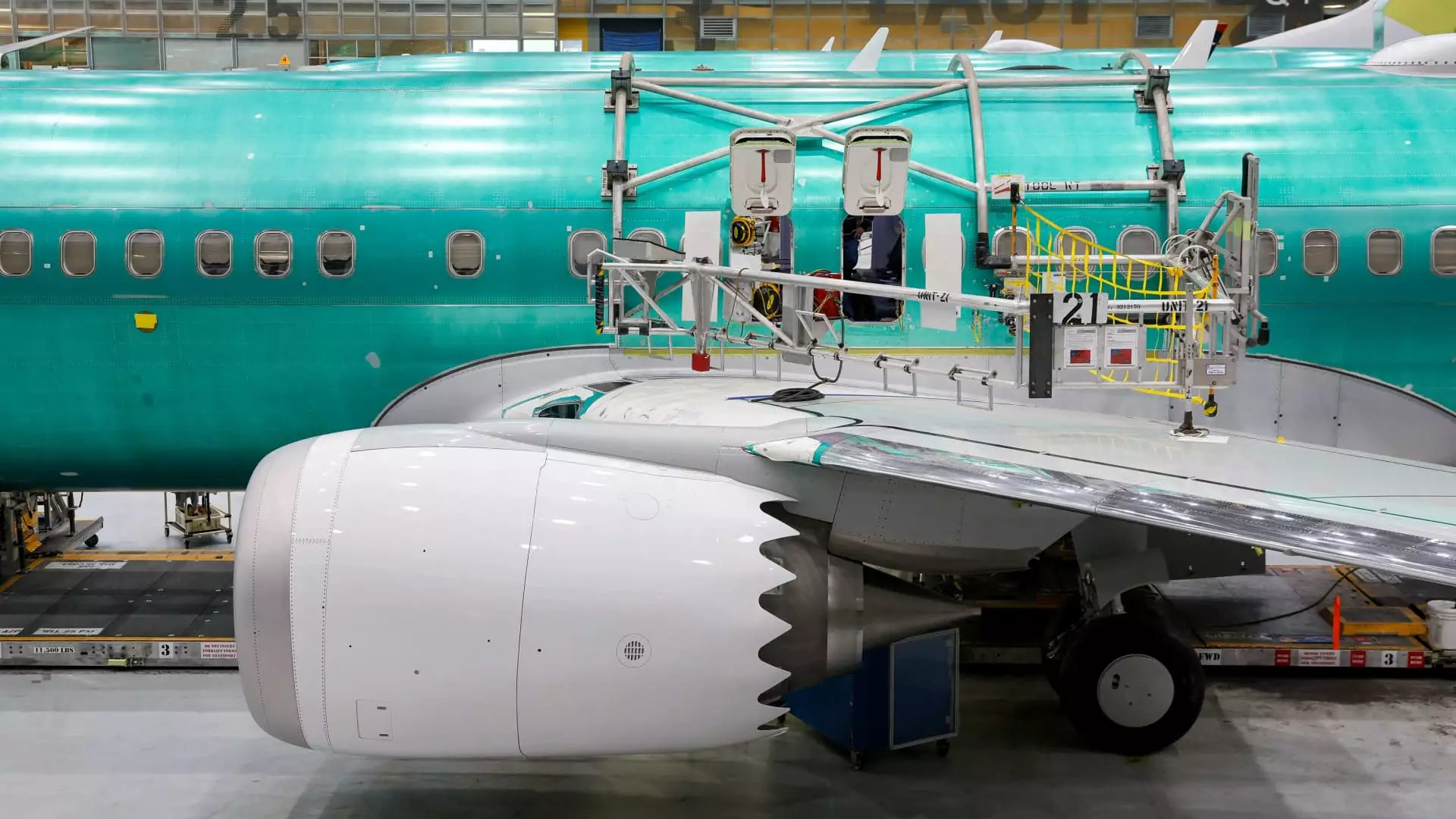Boeing, once the crown jewel of American aerospace manufacturing, now finds itself in a delicate dance of recovery and introspection. The significant safety incident involving an Alaska Airlines Boeing 737 Max 9 last year, which saw a fuselage panel fail mid-flight, brought to the forefront the long-standing concerns regarding the company’s safety culture and production quality. While the situation ultimately resulted in no serious injuries, it did serve as a harsh reminder that Boeing must grapple with its historical challenges if it wishes to reclaim its once-unassailable reputation. The failure to install key bolts before the aircraft left the Renton factory pointed directly to systemic issues within Boeing’s production processes and quality control mechanisms.
As the company navigates this tumultuous transition, it bears the brunt of a disheartened investor base. Over the past year, Boeing’s stock price has plummeted over 30%, a stark contrast to the more than 27% rise experienced by the S&P 500. The company’s decreasing stock value underscores a growing skepticism among investors about Boeing’s ability to remedy its multifaceted operational failures.
Leadership Changes and Workforce Investment
In response to these fraught developments, Boeing’s leadership has undergone significant transformation. The appointment of Kelly Ortberg as the new CEO marks a strategic pivot toward rebuilding the company from the ground up. Ortberg, with extensive experience from Rockwell Collins, is now charged with the critical task of instilling a renewed sense of accountability and rigor throughout Boeing’s operations. With the backdrop of a recent machinists’ strike that underscored worker dissatisfaction, the focus on employee training and production quality takes on heightened significance.
In addition to changing leadership, Boeing has begun enhancing its workforce capabilities through more comprehensive training for factory workers. New initiatives include random quality audits and addressing feedback from employees, reflecting an ongoing effort to foster a culture that prioritizes safety and quality over mere financial performance. Such a shift is paramount, especially considering the fact that the Federal Aviation Administration (FAA) has heightened its scrutiny of Boeing’s operations, indicating that an era of intensive oversight is likely to persist.
One of the critical takeaways from Boeing’s recent announcements is its commitment to reducing production defects, particularly related to its best-selling 737 Max jets. By intent on purchasing back defective components from suppliers like Spirit AeroSystems, the company aims to address historical inconsistencies that have plagued its manufacturing processes. Furthermore, the reduction of “traveled work,” which involves performing tasks out of the prescribed order, is pivotal in minimizing potential flaws.
This quality-centric approach represents a growing realization within the company that sustainable success will never stem from sheer production output alone. Rather, the focus should shift toward delivering consistent and high-quality products. As FAA chief Mike Whitaker aptly noted, the challenge at Boeing is not merely a temporary fix; it requires an intrinsic cultural shift emphasizing long-term commitments to safety and quality.
Reflecting on Boeing’s financial state reveals the gravity of its ongoing ordeal. Having not posted an annual profit since 2018, the company has seen financial losses exceed $30 billion since the onset of the 737 Max crisis. The challenging landscape necessitates that Boeing navigate its path to profitability with precise diligence, particularly as it gears up to ramp up production to meet newly heightened airline demands.
Additionally, as part of its recovery strategy, Boeing has begun trimming its workforce by 10%, a move signaling a back-to-basics philosophy in which doing fewer things correctly may lead to greater overall success. Ortberg’s mantra of prioritizing core competencies resonates well with this strategy. By concentrating on producing fewer aircraft with greater diligence, Boeing aims to re-establish confidence with its airline customers and investors alike.
Building Relationships for a Stable Future
In the eyes of industry experts, a significant aspect of Boeing’s recovery journey lies in its relationships with airline partners. Executives from major carriers, such as Bob Jordan from Southwest Airlines, have expressed cautious optimism for Boeing’s future under its new leadership. As these airline executives recognize a willingness from the new CEO to tackle substantial challenges rather than merely applying quick fixes, it sets the groundwork for a renewed partnership founded on trust and reliability.
As Boeing moves forward, the momentum gathered from these changes could very well dictate its path in an increasingly competitive aerospace market—one that sees Airbus consistently surpassing Boeing in delivery volumes. The road to recovery is undeniably daunting, yet with a robust focus on cultural transformation and operational excellence, Boeing may yet emerge from these struggles stronger and better equipped for future challenges.


Leave a Reply